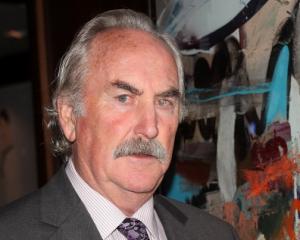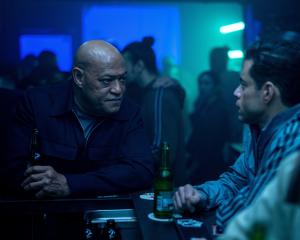Tusi Tamasese, writer and director of The Orator, might have been both nervous and excited about his film's recent premiere at the 68th Venice International Film Festival, but that's nothing compared to how he feels about its grand opening in Apia, Samoa, today.
"I am sort of nervous. The film is my perspective of growing up, but I know people back home are excited about seeing themselves on screen and hearing their own tongue being spoken," the Samoan-born auteur enthuses, albeit in a humble manner, over the phone from Wellington, where he is based.
Shot in several villages on the island of Upolo, and featuring a predominantly local untrained cast, The Orator (O le Tulafale) is entirely in Samoan. In fact, the island nation is the star of the film; as well as introducing aspects of its culture about which some might know little, Tamasese captures both the colour and sound of its lush environment.
Despite a location some might regard as exotic, Tamasese is more concerned with the grey corners of life.
At its heart, The Orator is the story of a man, Saili, who wants only to defend the honour of his beloved wife, Vaaiga.
Physically disadvantaged, Saili (played by Fa'afiaula Sagote, a dwarf) has no great aspirations or expectations for himself and yet, through his willpower and love for Vaaiga, he becomes an unlikely hero as he successfully argues for the return of his wife's body from a family who had banished her from their village.
Bringing shame on a family is "probably the worst thing you can do", Tamasese says, adding that banishment from a village still exists in Samoan culture.
"Banishment is extreme. Not only are you banished from your village, you are taken away from your land; you lose the connection with the land you grew up on. It is a very drastic thing."
Like Vaaiga, Saili has been banished to the fringes of society. Thus his attempts to redeem Vaaiga's honour have a twofold effect; in standing up for his wife, he is also standing up for himself.
"That's what brought them together," Tamasese explains. "He has physical limitations and she has an unforgiving past."
Deftly, the director portrays little intimacy between the pair. Apart from the occasional massage administered by Saili to his ailing wife, the audience gets mere glimpses of their quiet love for each other.
"When I wrote the film, I gave myself a lot of challenges," Tamasese says of a script he developed while studying at Victoria University in the mid-2000s.
"I did not want them to have any intimate touching or kissing - until the end, when Saili washes her feet. I wanted to show how love could exist in the space between people.
"It was a massive challenge to portray that, not only because he is a small person, but because I needed to make the relationship believable. I hope it works."
The Orator drips with metaphors: glistening leaves signify both growth and decay; patterns in nature reflect recurring human behaviour. And despite being surrounded by fecund bush, some villagers are depicted as somewhat barren of spirit. Death, too, is ever-present.
"When I wrote this script, I had a fascination with death, with how graves can be placed in someone's yard," Tamasese says of the practice common within some Pacific Island cultures (including Samoa and the Cook Islands) to give family graves pride of place on private property.
"The bond between us and our beloved is not separated by death. Every time we come out of our house, we see that slab of rock and are confronted by it."
Saili might be a man of little physical prowess, yet he is entrusted to guard others' property; as a night watchman, he both bears witness to various nocturnal activities and has time to hear his own echo, as Tamasese puts it.
"He knows what is happening. Night in Samoa is a time for spirits to come out. There is a metaphor behind it: Saili is always surrounded by death but he never dies or gets sick."
Saili's physical stature also touches on aspects of unfulfilled potential, the director notes.
"The image of a Samoan chief is of someone big and tall, who has mana, a witty tongue and is fearless. I wanted to strip that away and find out what was underneath. Saili, being a small person, allowed me to do that."
As its title indicates, Tamasese's film also examines the importance of public speaking within Samoan society.
"In village ceremonies and cultural ceremonies, you need to be a chief to speak. But there are different kinds of chief: there are high chiefs, who don't speak, but have their orators who speak for them.
"To get a title, to earn that place, you have to go through 'service' [be deemed to have performed duties to both family and community]."
In arguing a point, settling a disagreement, conveying criticism or wit, an orator performs a vital societal function. It's a way of avoiding confrontations escalating or manifesting in other forms.
"It is about talking instead of clubbing," Tamasese says. "It keeps the harmony.
"War can be avoided through a simple conversation between two chiefs."
• Catch it
The Orator (O le Tulafale) opens nationwide on Thursday, October 6.












